Set in the future when "firemen" burn books forbidden by the totalitarian "brave new world" regime.
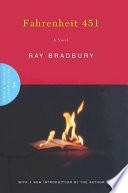
Average Rating
Informations
About the author
Ray Bradbury
Author
Ray Douglas Bradbury was an American author and screenwriter. One of the most celebrated 20th-century American writers, he worked in a variety of genres, including fantasy, science fiction, horror, mystery, and realistic fiction.
Fahrenheit 451
by Ray Bradbury
Books Like Fahrenheit 451
If you're looking for books similar to Fahrenheit 451, here are some recommendations based on themes, tone, and narrative style.
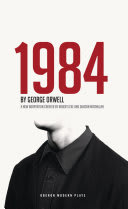
1984
George Orwell
A dystopian novel exploring a totalitarian society where individual thought is suppressed. The government controls all information and manipulates reality. Citizens are constantly monitored and stripped of personal freedoms. The protagonist Winston Smith rebels against the oppressive system. Like Fahrenheit 451, it critiques censorship and the dangers of authoritarian control.
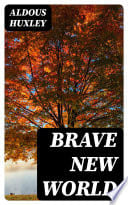
Brave New World
Aldous Huxley
A dystopian novel depicting a future society controlled through technological manipulation and psychological conditioning. Citizens are engineered to conform and consume. Individual thinking is discouraged in favor of social stability. The story explores themes of technological control and loss of personal freedom, echoing Fahrenheit 451's critique of societal suppression.
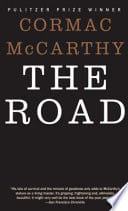
The Road
Cormac McCarthy
A post-apocalyptic novel following a father and son surviving in a devastated world. The story explores themes of human survival, moral choices, and preserving humanity in extreme conditions. Like Fahrenheit 451, it examines the resilience of human spirit in the face of societal breakdown and loss of civilization.
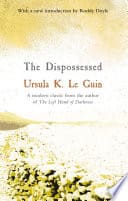
The Dispossessed
Ursula K. Le Guin
A science fiction novel exploring political systems and individual freedom. The protagonist navigates between two contrasting societies, examining different approaches to social organization. Similar to Fahrenheit 451, it critiques systems that suppress individual thought and creativity.
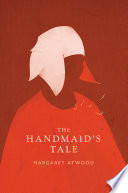
The Handmaid's Tale
Margaret Atwood
A chilling dystopian narrative set in a repressive society where women are stripped of their rights and individuality. The government controls information and personal autonomy. The protagonist struggles against a system that suppresses free thought and personal expression. Similar to Fahrenheit 451, it explores themes of censorship and societal control.
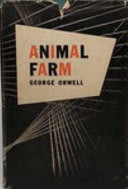
Animal Farm
George Orwell
An allegorical novel critiquing totalitarian systems through a story of farm animals overthrowing their human masters. The revolution gradually becomes corrupted, mirroring real-world political oppression. Like Fahrenheit 451, it explores how power can be used to manipulate and control populations. The narrative warns against the erosion of individual rights.
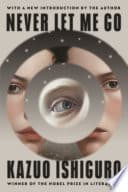
Never Let Me Go
Kazuo Ishiguro
A dystopian novel about clones raised for organ donation, exploring themes of humanity and individual identity. Characters gradually discover the truth about their predetermined existence. Similar to Fahrenheit 451, it critiques systems that dehumanize individuals and suppress personal autonomy.
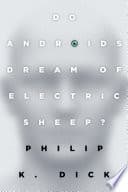
Do Androids Dream of Electric Sheep?
Philip K. Dick
A science fiction novel exploring the nature of humanity and artificial intelligence. Set in a post-apocalyptic world, it questions what defines consciousness and individual identity. Like Fahrenheit 451, it examines themes of technological control and individual autonomy.
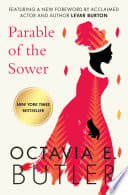
Parable of the Sower
Octavia Butler
A dystopian novel set in a collapsing society, exploring themes of survival and social transformation. The protagonist creates a new philosophical and social framework in response to societal breakdown. Like Fahrenheit 451, it examines individual resilience in the face of systemic oppression.
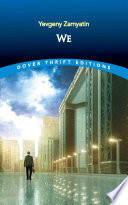
We
Yevgeny Zamyatin
An early dystopian novel about a totalitarian state where individuality is crushed under collective conformity. Citizens live in transparent buildings, constantly monitored by the government. The protagonist begins to question the rigid societal structure. Like Fahrenheit 451, it explores themes of personal freedom versus state control and the suppression of independent thought.
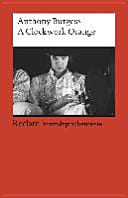
A Clockwork Orange
Anthony Burgess
A dystopian novel about free will, social control, and individual choice. The protagonist is a violent youth who undergoes psychological conditioning to become 'good'. The story explores themes of personal freedom and societal manipulation. Similar to Fahrenheit 451, it questions the nature of individual choice in a controlled society.
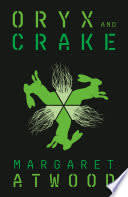
Oryx and Crake
Margaret Atwood
A post-apocalyptic novel exploring genetic engineering and societal collapse. The story examines how technological advancement can lead to human destruction. Similar to Fahrenheit 451, it critiques systems that prioritize control and technological progress over human values.
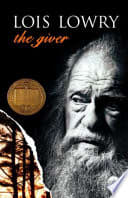
The Giver
Lois Lowry
A young adult dystopian novel about a seemingly perfect society that has eliminated pain and conflict by removing emotional depth and individual choice. The protagonist discovers the dark truth behind his community's apparent harmony. Similar to Fahrenheit 451, it explores the importance of individual thought and the dangers of suppressing human complexity.
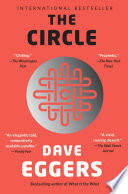
The Circle
Dave Eggers
A contemporary novel about technology, privacy, and social media control. The protagonist works for a powerful tech company that seeks total transparency and information control. Like Fahrenheit 451, it explores the dangers of technological surveillance and the erosion of personal privacy.
No account connected — sign in to comment.
